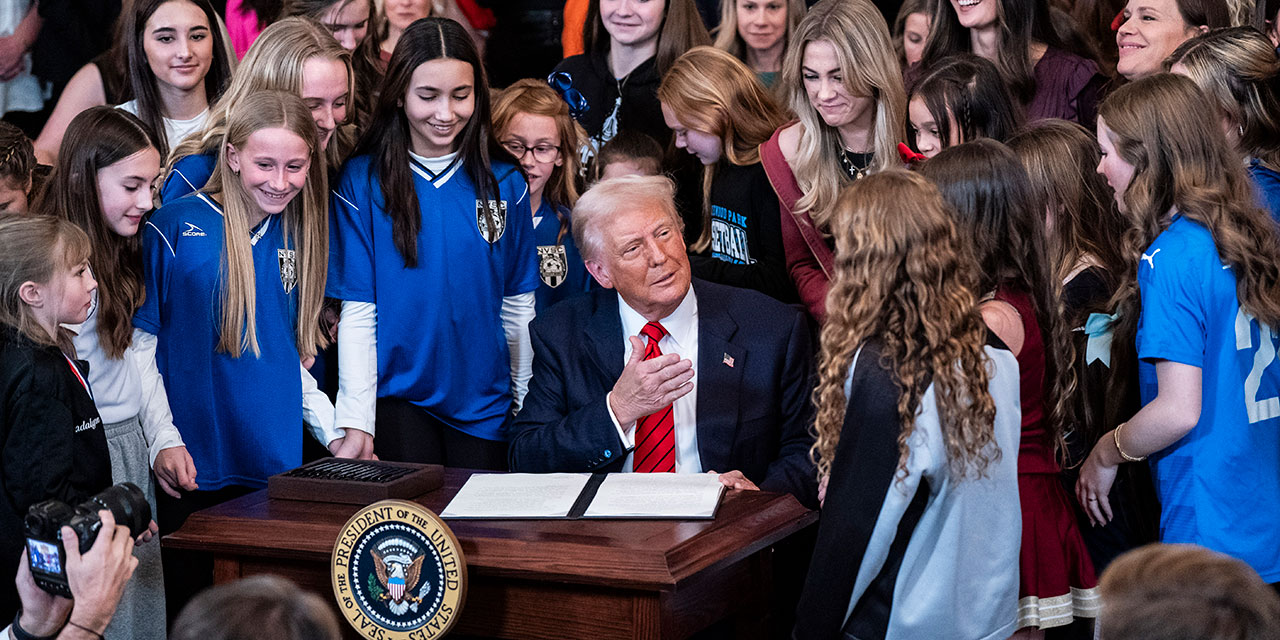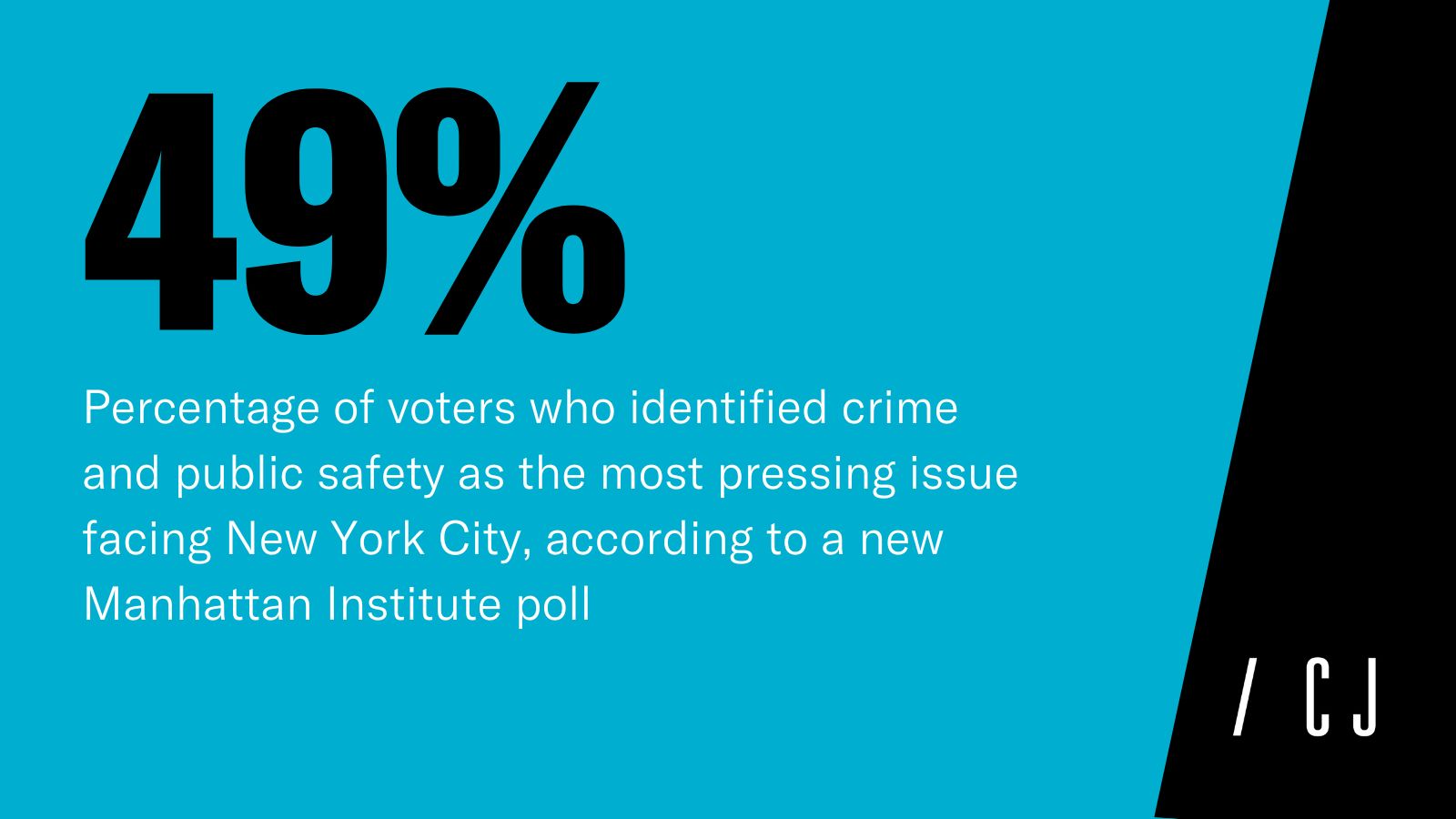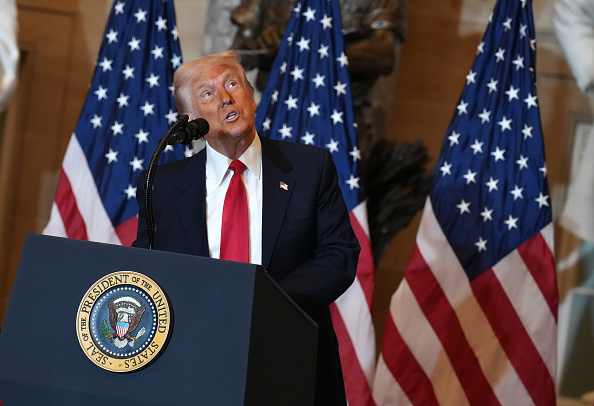|
Forwarded this email? Sign up for free to have it sent directly to your inbox. |
|
|
Good morning, We hope you had a great weekend.
Today, we’re looking at Americans’ support for keeping men out of women’s sports, the young engineers working for DOGE, what to expect from Trump’s tariffs, a new division within the NYPD, and a move to get the seriously mentally ill off of New York City’s streets.
Write to us at editors@city-journal.org with questions or comments. |
|
|
There aren’t many things Americans agree about these days, but keeping gender ideology out of K-12 and collegiate sports is apparently one of them.
According to a January 2025 New York Times/Ipsos poll, 79 percent of Americans agreed that “athletes who were male at birth but who currently identify as female” should not be eligible for female sports. This makes President Trump’s recent executive order on women’s sports “one of the most popular executive orders of the twenty-first century,” writes Manhattan Institute fellow Leor Sapir.
The EO reverses Obama- and Biden-era policies that required schools to accommodate student athletes according to their “gender identity,” and it goes further: “allowing male students to participate in female sports will now be grounds for revocation of federal funds and could expose educational institutions to legal liability,” writes Sapir.
Trump’s directive was quickly followed by an NCAA decision to ban male participation in women’s collegiate athletic programs. The question now is where this decision leaves Democrats. Read the article here. |
|
|
| Athletics is the policy area where public opinion shifted earliest and most clearly against gender ideology. |
|
|
Elon Musk has tapped a small team to staff the brand-new DOGE. More specifically, according to Wired, Musk’s new project employs “six young men—all apparently between the ages of 19 and 24, according to public databases, their online presences, and other records—who have little to no government experience.”
The press has treated these twentysomethings’ role in Musk’s project with alarm. But as Manhattan Institute fellow Danny Crichton points out, there’s nothing unusual about people in their twenties playing pivotal roles in the federal bureaucracy. Young people, he observes, have staffed major agencies throughout the nation’s history, stretching back to the Founding era.
In fact, Crichton suggests, DOGE could become this century’s version of the Rhodes Scholarship, helping “deliver America’s meritocratic best into the halls of power.” Read the rest of his piece here. |
|
|
President Trump’s 25 percent tariffs on Canada and Mexico are on hold—for now. But whether they go or stay, they have already “overturned the reigning orthodoxy in trade and diplomacy,” writes City Journal economics editor Jordan McGillis. While the long-term impacts of the Trump tariffs remain a matter of heated debate, one thing is clear: they will lead to short-term economic pain for consumers on both sides of the border, increasing the price of everything from auto parts to lumber to oil and gas.
To be sure, Trump administration officials understand these dynamics but appear to be betting that tariffs, or the threat of them, can be used to reshape global trade flows to America’s advantage. “In the short term, though, Americans and Canadians alike would be made poorer by the Tariff Man,” writes McGillis. |
|
|
New Yorkers are fed up—with disorder on trains and buses, in parks and plazas, and on sidewalks across the city. The good news? The NYPD is listening, writes City Journal contributing editor Rafael A. Mangual.
The department has announced a new quality-of-life division aimed at reclaiming public spaces. That means tackling nuisance crimes like subway benches taken over by vagrants, drug dealers and junkies crowding street corners, and mopeds weaving dangerously between pedestrians.
This is good news for New Yorkers for two reasons, writes Mangual. First, “Sweating the ‘small stuff’ will pay real public-safety dividends, as past evidence suggests.” And second, it means that the NYPD is responding to community concerns. Read his article here. |
|
|
For decades, New York has closed or downsized its public psychiatric hospitals. Some of the patients that those facilities discharged—and some individuals who were never hospitalized—now wander city streets. In the most tragic cases, people with serious mental illness have decompensated to the point of violence against themselves or others.
After a year that saw several high-profile crimes committed by people with untreated mental disorders, New Yorkers demanded change. Governor Kathy Hochul, responding to the public outcry, proposed broadening involuntary-commitment standards. Her amendments to the state’s mental-hygiene law would allow hospitals to retain individuals at “a substantial risk of physical harm” due to their “inability or refusal, as a result of their mental illness, to provide for their own essential needs.” Carolyn Gorman thinks the governor’s proposal is necessary and humane. Read her full take here. |
|
|
This is the real caption for this image: |
“U.S. President Donald Trump speaks at the National Prayer Breakfast at the U.S. Capitol on February 06, 2025 in Washington, DC. The bipartisan National Prayer Breakfast brings lawmakers and faith leaders together to pray and discuss religion and fellowship.”
|
But we bet you can come up with a better one. Send your submissions to editors@city-journal.org by noon Eastern tomorrow. We'll feature our favorite(s) in an upcoming newsletter. | |
|
A quarterly magazine of urban affairs, published by the Manhattan Institute, edited by Brian C. Anderson. |
|
|
Copyright © 2025 Manhattan Institute, All rights reserved. |
|
|
|





